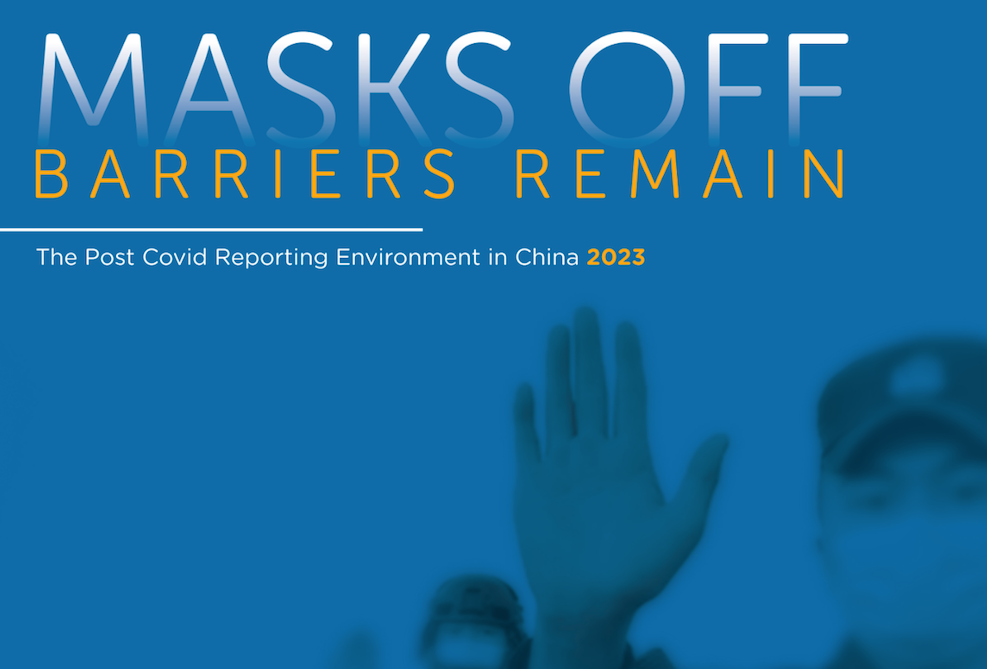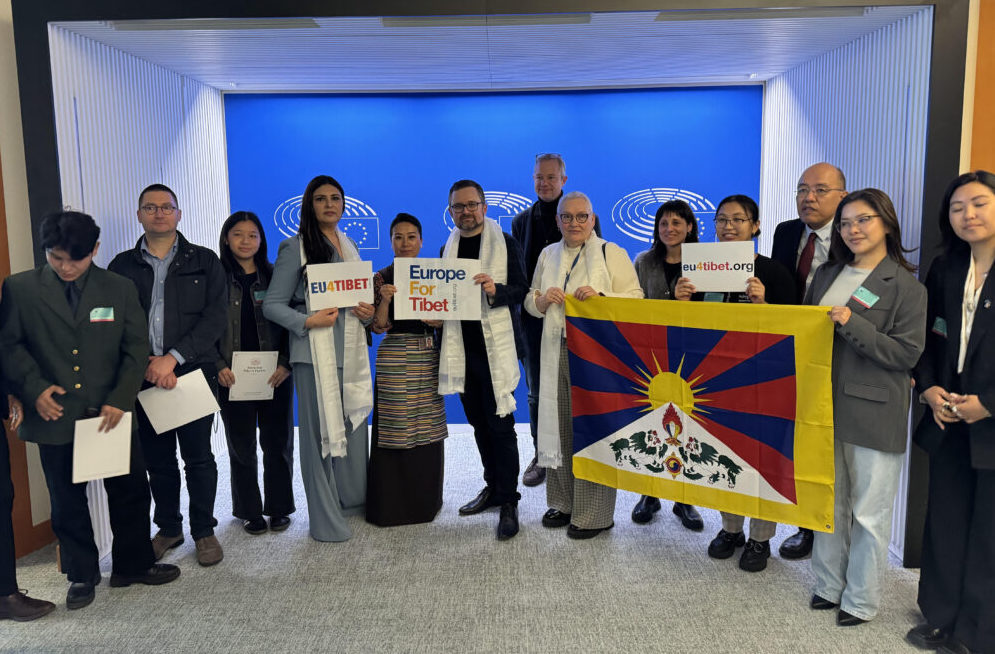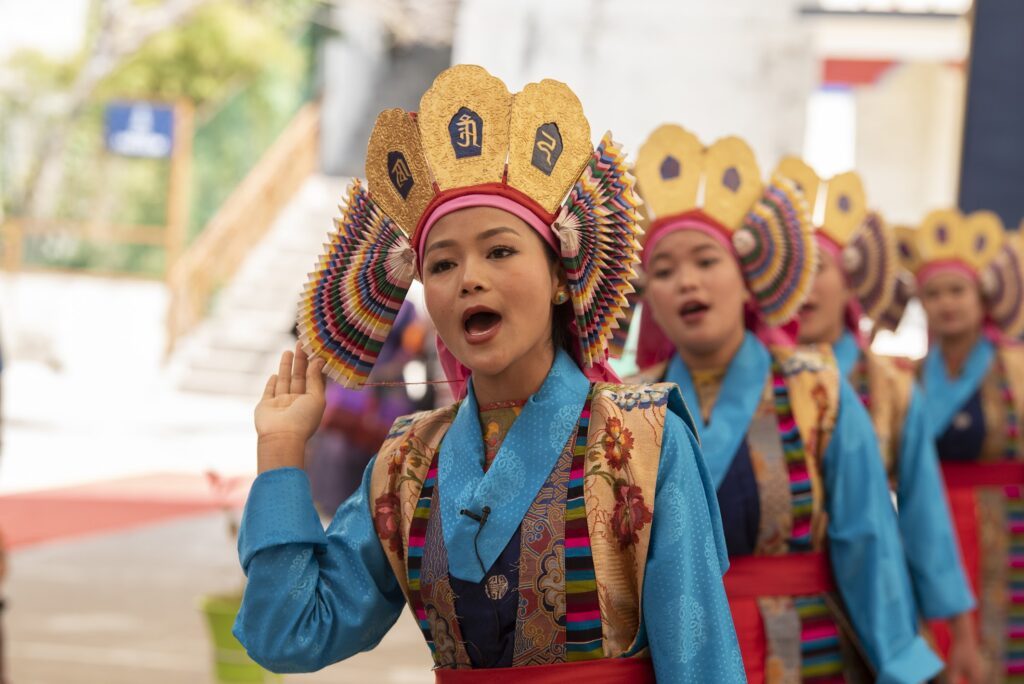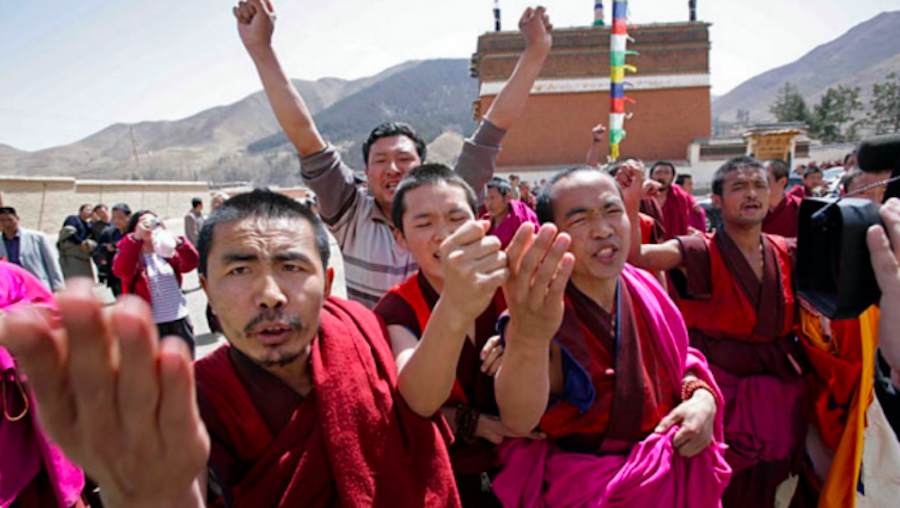KBRW Interview
RADIO BARROW
Silakkuagvik Communications, Inc. Alaska, U.S.A.
Tenzin Tsundue speaks to Earl and cathy
Earl Finkler is a news reporter with KBRW and lives in Barrow. Cathy Rexford is an Inupiaq social activist from Northern Alaska.
Cathy(Interviewer): Tenzin, can you tell us a little bit about yourself and your background?
Tenzin: My name is Tenzin Tsundue. I am a Tibetan refugee living in India. I’m born in India and did all my studies and grew up in India. My parents came from Tibet, when they were children after the Chinese occupation of Tibet. Presently they are living in South India in the refugee camp.
Earl(Interviewer): Could you tell us about the community you live in? Things like utilities and transportation and health services and internet and things like that?
Tenzin: Here in India, there are 100,000 Tibetan Refugees living. They are scattered all over India in refugee camps, there are institutions; Tibetan schools, monasteries, handicraft centers. So they are living in different pockets of refugee camps all over India. The Tibetan children go to Tibetan schools, but the school system, education system is Indian. They do get to learn Tibetan language, history, the cultural heritage. But most of the education, since they are Indian systems, they also learn English, Hindi, the local language in here and after that they go to college and study. The youngsters are exposed to most of the Western education as are any other people in India. These days the youngsters are very technology savvy. Most of them know the English language, they can use the computer and the internet and Tibetan youngsters love to chat on the net. At the same time through the net browsing they get to know much about the outside world and how China thinks about Tibet and the relationship and the world outlook on Tibet. That’s about it about the exile community.
Cathy:What does it mean to live in exile?
Tenzin: Living in exile is full of angst. One really is not at home all the time and that is the tragedy there. One is always, always aware or conscious that he does not live in his home. He has to constantly see that this is not his home, he has to work on something and he has to return home. In exile the language, the atmosphere, the people he meets, everything is so foreign for the person. I think this kind of realization happened when I was growing up in school when I was around fourth or fifth standard. Then I really realized that I do not belong here and I cannot have anything here in exile. Not my bed, not my table I write on, I cannot have a house here, I cannot own anything here- I’m not here. My parents may be living here, I may be staying here but everything is temporary. So that is constantly there as you grow up and as you live. Even when you’re grown up you are constantly worried about everything that is impermanent and everything that is so stationary. So I think that angst that is constantly with you is the biggest thing that you live with as a person in exile.
Earl: Tenzin, it’s been over half century now since China invaded and conquered Tibet. What do you see now in this year, and for the future, as the biggest challenge your people are facing?
Tenzin: I think the biggest challenge the Tibetan people face is how do we face, how do we find a solution to the issue. In the western countries the Tibetan issue has attracted much attention. But the attention seemed to be of different sorts. It’s all about the attraction on the Tibetan religious identity, the Buddhism, the name of the Dalai Lama. That kind of attraction has taken away the real issue of Tibet. The real issue of Tibet is that the Tibetans lost their independence and they have to go back home, they have to regain that independence. That issue seems to have been taken away. We are known all over the world, still our issue is not known. And that we have to be really strong moving forward and make that happen. And if the world could see the Tibetan people as people who are devoid of their freedom and dignity, then I think we could re-assert ourselves as people and as a nation. And without that recognition from outside…You know we have been living in exile for the past 45 years, we have a government in exile in Dharmsala, headed by the Dalai Lama himself. But there is not a single government in the world which recognizes that government in exile. For the real issue of Tibet, we are still to go forward to gain anything concrete. So I think this re-assertion of ourselves as a people, as a people living in exile and a country which is occupied by another powerful country is the issue we have to bring up. And only then we could move forward in finding a solution.
Cathy:Tenzin, you spoke to the political aspects of exile, can you talk about how you find a healthy personal and cultural identity in the context of your surroundings?
Tenzin: Living in exile puts a person in real test of searching for identity. The person constantly has to tell himself or herself that this is my cultural root. Here in India, the Indians complain that their youngsters are exposed to western influences. But for the Tibetans it’s a double. The Tibetan youngsters are exposed to the Indian “Bollywood” culture, at the same time the “Hollywood” culture influences. So these youngsters have to constantly tell apart that these are the influences coming on me. Living in exile with all the freedom, and the whole community is scattered so badly, the youngsters have to constantly find out their own roots. And because they are studying in Indian schools and colleges it is such a daunting task for the youngsters to continue to hold their cultural identity. They want to do that deep in their hearts, but it has become so difficult. These youngsters are born in India, they have never seen Tibet. And it is the elders who tell the youngsters that you have to preserve your culture and your identity. But these youngsters who have never seen Tibet, it becomes difficult for them to even imagine what Tibet really looks like. So they get to see the images of Tibet in the films, in photographs. So it becomes so difficult for the Tibetan youngsters to really hold onto that cultural identity, which they really yearn for in the heart. But, outwardly in the surroundings, the atmosphere it has become so difficult.
Earl: Tenzin, given the challenges you’ve mentioned and how long the exile has been, how do you keep your hope alive in these times?
Tenzin: Keeping the hope alive lives in the sense of suffering. If we could suffer in the worst of times and constantly tell ourselves we have to bear it, we have to face the challenges, we have to face the difficulties and live on without letting go, without giving up, I think we are answering ourselves and we will live through the difficulties and then see the successful bright morning the next day. But living through these difficult times it is the moment we have to hold onto and if people give up in the process then they will never see the bright day the next sunny morning. So, this is our hope, that one day we will go home. This is what we have been hearing from our elders, we have been telling ourselves and we have been telling each other and the Tibetan youngsters that there will be one day. And that one day is for us the hope and to see that one day that we would return to our home, we could go back with our own parents who are now here in exile. So that one day, waiting for that one day and not only waiting but working so that that one day becomes a reality for us is the hope and how we could continue to live for that hope.
Cathy:What do you feel is the most important or most valuable contribution that you can give to help your people?
Tenzin: It’s usual that in any kind of community you do not expect everybody all 100% of the people to work for the community. There are people who like to live their own personal lives. Myself as an example of a person who is consciously living for the cause, I have to constantly hold onto this notion that not all of us are working for that. And those of us who are working should be really sincere. And if I could gather more people, I think the real strength of a struggle lives with the people who are making difference. And these people if they are sincere and hard working the struggle will really live through to a successful end and in the whole process of making it. So I constantly move around the Tibetan community to the youngsters, meeting the elders and seeking their advice, learning from their experiences and then again connecting to the youngsters who are younger than me and who are of my age. So I’m acting that activist that volunteers. So I think this is the contribution I have to offer to the community.
Earl: Tenzin, the U.S. supports freedom in countries around the world including places like Iraq, how has the United States reacted to the Tibetan freedom effort?
Tenzin: I have a lot of difficulties with the country United States of America. I look at the United States as a country which has occupied many countries, which has helped people causing these troubles. And I do not really see a moral base for United States to support any freedom movement. With the Tibetan people, they seem to be sympathetic and they have extended some support. But at the same time it is the same country, the United States of America as you said, has this base of supporting freedom. But on the other side it’s the same country which does all the business with China, who has occupied countries like Tibet, East Turkistan and Mongolia and Manchuria. So I don’t know how the United States could do all these things at two different points. I usually have these difficulties with the United States of America.
Cathy:Tenzin, you are a writer, poet, and activist, what advice might you have for a young person who also has dreams of making a difference in their community, who wants to become active in the way their home communities develop?
Tenzin: Presently the role that I see in building the community in the freedom struggle of Tibet is what I can do the best for community. And that is by writing and that is by being an activist working within the Tibetan community. But I wouldn’t ask everybody to do that. We all have our own skills and special talents we can offer to the community. I would advise any youngsters to first really know the community, their cultural background, the cultural identity. Once somebody understands that, and that cannot be understood by others, it can be understood only by that person who is living in that community, who belongs to that community. So once the person understood that cultural identity, then he would also find the mistakes, would really be a critique to the community. And that critique is happening because a person is sincere and wishing good for the community. Once we are living in that community then we would find ways in which the person could contribute to the development for the betterment of that community. So I would suggest everybody to first know and learn about the community you belong to. If you could do that, then you could contribute. You could offer that contribution to the community.
Earl: We thank you for joining us Tenzin, are there any final comments you would care to share with the people listening across the North Slope of Alaska?
Tenzin: I have this request: The Tibetan people, we have been continuing the freedom struggle in a non-violent way. The Tibetan people believe in non-violence and it is the non-violence the Tibetan people are practicing. It is not a strategy, it is their belief. However hard or harsh the suppressive the Chinese people, the Chinese government would be, we would never resort to violence. But, that does not mean that Tibetan people would be silent. We will continue to work. At the time when the world is talking of peace and complaining about all the violent activity going on all over the world, I think there is a special responsibility the world should bear, that they should support the non-violent way of solving the Tibetan problem. His Holiness has been the champion of non-violence and peace. We are doing this in a very practical manner, but we are not receiving support from the world. We have been ignored just because we do not hit news headlines. Because we do not kill people, we do not throw bombs, it does not mean we are silent. We want that support because we are trying to do it non-violently. With the Tibetan youngsters who are growing up with all the modern education it is becoming such a daunting task for the Tibetan youngsters to continue that belief in non-violence. We are finding it very difficult, we want that support at this difficult point. That would really offer a non-violent solution in finding problems in national identity, in solving people’s freedom. I have to ask for this request. Thank you.









